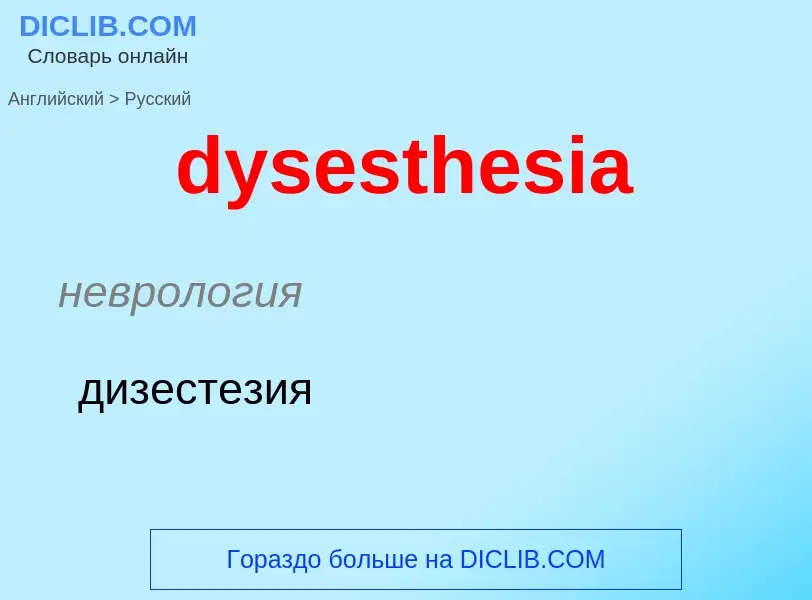Translation and analysis of words by ChatGPT artificial intelligence
On this page you can get a detailed analysis of a word or phrase, produced by the best artificial intelligence technology to date:
- how the word is used
- frequency of use
- it is used more often in oral or written speech
- word translation options
- usage examples (several phrases with translation)
- etymology
dysesthesia - translation to russian
неврология
дизестезия
[disi:s'θi:siə]
медицина
дизестезия
расстройство чувствительности
существительное
медицина
дизестезия
расстройство чувствительности
медицина
дизакузия
Definition
Wikipedia
Dysesthesia is an unpleasant, abnormal sense of touch. Its etymology comes from the Greek word "dys," meaning "bad," and "aesthesis," which means "sensation" (abnormal sensation). It often presents as pain but may also present as an inappropriate, but not discomforting, sensation. It is caused by lesions of the nervous system, peripheral or central, and it involves sensations, whether spontaneous or evoked, such as burning, wetness, itching, electric shock, and pins and needles. Dysesthesia can include sensations in any bodily tissue, including most often the mouth, scalp, skin, or legs.
It is sometimes described as feeling like acid under the skin. Burning dysesthesia might accurately reflect an acidotic state in the synapses and perineural space. Some ion channels will open to a low pH, and the acid sensing ion channel has been shown to open at body temperature, in a model of nerve injury pain. Inappropriate, spontaneous firing in pain receptors has also been implicated as a cause of dysesthesia.
People with dysesthesia can become incapacitated with pain, despite no apparent damage to the skin or other tissue.

